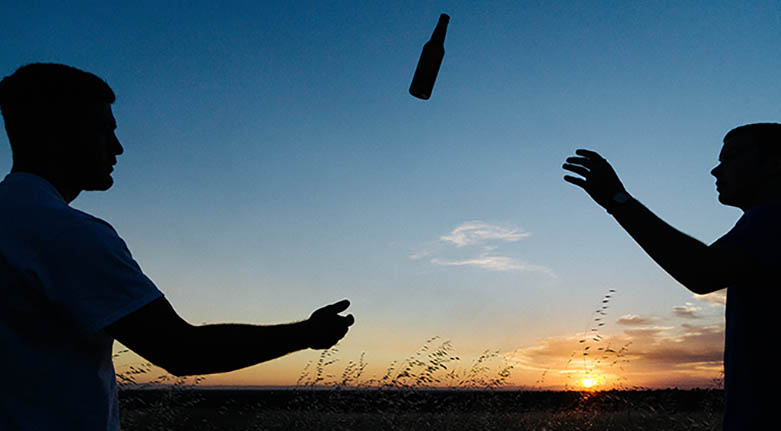When we help

I often catch myself feeling ashamed when I explain to a refugee that I work as a refugee worker. I choose another term, say something like “I work with refugees”, to avoid at all costs the word “help”.
Maybe when you study social work you deal with the concept of help. For me it is new in this form. All I know is: When someone comes to me and says “Let me help you”, some kind of shift of power occurs. The person is somehow above me. He or she is able to do more, knows more or is in a state that I haven’t reached yet, or will never reach. It becomes even more obvious when many helping people get together to advise each other on how to improve helping the help receivers. Those are social meetings and workshops. At these we constantly talk about “encounter at eye level”. Probably the most inflationary-ly used term. Probably the most incorrect term.
Eye level cannot develop when one side is always giving and the other one always receiving. When the one is always in need of help and never gets into the situation of helping someone else. Eye level develops when I pay this time for lunch and next time my friend does. Eye level develops when I help my class mate at German, because I am better at it, and he helps me at math, because it’s in his nature. There is no eye level between grown-ups and kids, sick people and healthy people – and between refugees and helpers.
Eye level only develops between human and human. And I have to say that it is really hard to me to let go of the institutional, the helping, when I am around refugees. In one moment I am a young person talking to other young people, who coincidentally happen to have experienced fleeing, and suddenly, one moment later, I am again a helper.
It is difficult for me to answer to “Thank you”. What am I supposed to say? “It’s my job”? “I get payed for it”? It’s true, but not always. What is it then? Volunteering, which I will put on my CV and get better chances on the labor market? Why can’t it be just friendship?
I normally limit my reaction to a “You would have done the same for me”, even though I cannot know for sure. Probably I will never get into the situation that I will have to flee my country one day.
“When the war is over you can invite me to your place in Syria”, I once said to someone who asked me how he could repay me for what I did for him. He laughed sadly and told me that this won’t happen very soon.
It is probably the curse of the youth that we are always in a rush. Maybe eye level is only a decade away, in which the newcomers have time to orient and settle down. Maybe helpfulness will transform into an equal friendship, if we only give people the chance to rearrange themselves a little. And who knows, maybe one day I will walk with every one of those now in need through Aleppo, Kabul, Asmara and Bagdad, while they are showing me the sights of their countries.
Maria Tramountani

Leave a Reply